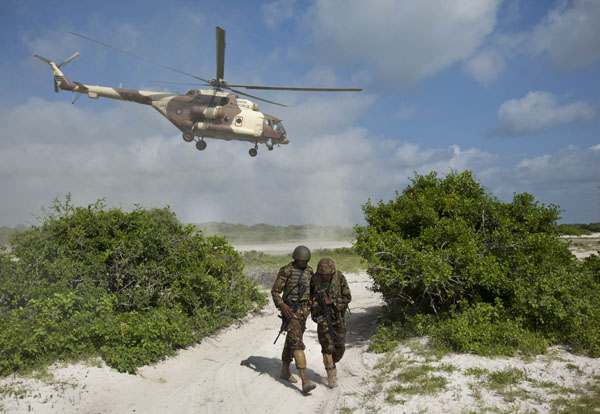
Donors and stakeholders from Somalia, the region, and the international community must craft a plan for who will govern southern Somalia if and when Kenya's intervention to oust the jihadi group al-Shabaab succeeds in order to create stability in the highly contested region, said eminent Somalia expert Ken Menkhaus in a new paper published by Enough.
Menkhaus, a professor of political science at Davidson College and a specialist on Somalia, argues that the three-month military intervention in the Jubbaland region of Somalia could have unintended negative consequences unless a strategy is put in place.
“Intervention strategies that plan the war but not the peace will fail,” Menkhaus said. “Kenya risks this fate in southern Somalia. Unless a plan is crafted, Kenya is not likely to get what it wants – a more stable and secure border area. Instead, its offensive could destabilize the region.”
The paper explains the roots of Kenya’s incursion into Somalia and the challenges the military intervention faces including getting bogged down in heavy rains, the potential for terrorist reprisals in Kenya, and the possibility of prolonged urban warfare in the Somali port city of Kismayo.
“There is an urgent need to initiate Somali dialogue toward a ‘Kismayo solution’ before the city changes hands,” Menkhaus said. “A successful Somali dialogue on rights and claims on Kismayo could serve as a model for other contested Somali urban areas. Kismayo needs to be a setting where Somalis agree explicitly to create a 'cosmopolitan city' – one in which all Somalis have full rights to live, work, own property, and operate businesses.”
He emphasizes that responsibility for making post-intervention arrangements fall not just to Kenya but to key donor governments from the West, the Islamic world, the United Nations, the African Union, and regional external actors. “The details of a governing arrangement need to be hammered out by Somalis, not foreigners, but the general principle of open access is something external actors can and should insist on.”
Menkhaus sees both potential pitfalls and benefits of the intervention. “Though there are good reasons to second-guess the Kenyan military intervention, it could produce an unexpected and rare window of opportunity in Kismayo," he said. "That opportunity will be missed unless diplomatic initiatives are initiated immediately.”
Read the full report: “After the Kenyan Intervention in Somalia.”
Photo: Kenyan soldiers in Somalia (AP)

